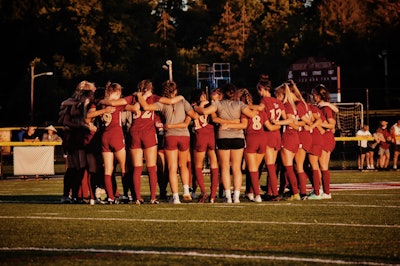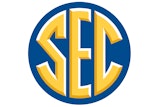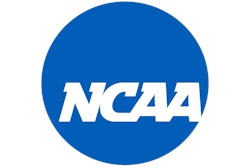
Most Americans oppose allowing transgender female athletes to compete against other women at the professional, college and high school level, according to a poll conducted by The Washington Post and the University of Maryland poll.
As reported by The Post, the poll was conducted May 4 through 17 among 1,503 people across the United States. It found that 55 percent of Americans are opposed to allowing transgender women and girls to compete with other women and girls in high school sports and 58 percent are opposed to it for college and professional sports. About 3 in 10 Americans said transgender women and girls should be allowed to compete at each of those levels, while an additional 15 percent had no opinion.
At the youth level, 49 percent are opposed to transgender girls competing with other girls, while 33 percent said they should be allowed to compete and 17 percent had no opinion.
The poll was taken as an increasing portion of Americans, particularly younger ones, identify as transgender and the issue of whether transgender females should compete against cisgender women and girls has become a point of social and political debate.
Last week, Louisiana joined at least 17 other states in banning transgender women and girls from competing on female sports teams. Much of that legislation across the country has been passed in the past year, led by Republican lawmakers. The Louisiana ban, which applies to all public and some private elementary and secondary schools and colleges, became law after the state's Democratic governor declined to sign it or veto it, according to Tara Bahrampour of The Post.
The issue has become politicized despite the small share of people who identify as transgender and the limited number of specific situations in which participation has raised concerns.
A 2021 Gallup telephone poll found 0.7 percent of adults identifying as transgender, while a slightly larger percentage identified as gay (1.5 percent), lesbian (1 percent), bisexual (4 percent) or another non-heterosexual identity (0.3 percent). A Pew Research Center poll released last Tuesday found that 0.6 percent of Americans identify as transgender, but among people age 18 to 29, the share rose to 2 percent. An additional 1 percent of Americans said they are nonbinary — neither a man nor a woman, or not strictly one or the other — a share that rose to 3 percent of people 18 to 29.
Critics say transgender females, in particular, have an unfair physical advantage against cisgender females because of factors such as generally having a greater muscle mass and larger skeletal frame, bone density and testosterone levels, which can help boost athletic performance.
Critics of the bans say they deny transgender athletes' right to compete in a space that aligns with their gender, further stigmatizing children who are at greater risk of mental health problems. Critics also say the bans overestimate the extent of trans girls' and women's participation in athletics.
Other key findings from the Post-UMD poll include:
- 68 percent say that transgender girls would have a competitive advantage over other girls if they were allowed to compete with them in youth sports, while 30 percent say neither would have an advantage, while 2 percent say other girls would have an advantage.
- 52 percent say they are "very" or "somewhat" concerned that transgender girls' mental health will suffer if they are not allowed to compete with other girls in youth sports, while 48 percent are "not too" or "not at all" concerned about this.
- 40 percent of Americans say greater social acceptance of transgender people is "good for society," while 25 percent say it is "bad for society" (down from 32 percent in a Pew Research Center survey one year ago), and another 35 percent say it is "neither good nor bad."
- 16 percent know a close friend or family member who is transgender, and 40 percent say they personally know any person who is transgender, apart from acquaintances, and these Americans are twice as likely to say greater social acceptance of transgender people is good for society: 70 percent, compared with 35 percent among those who do not have a transgender friend or family member.
- 64 percent of Democrats believe that greater social acceptance of transgender people is good for society, compared with 40 percent of Independents and 14 percent of Republicans.
- 54 percent of Americans ages 18 to 29 say transgender acceptance it is good for society, compared with 48 percent of Americans in their 30s, 46 percent of those in their 40s, 28 percent of those ages 50 to 64 and 32 percent of people 65 and older. At the same time, less than half of 18-to-29-year-olds say transgender women and girls should be allowed to compete with other female athletes at any level.
The idea that Americans would become more accepting of transgender people as they become more visible in society makes sense to Michael Hanmer, research director of UMD's Center for Democracy and Civic Engagement, which partnered with The Post on the survey.
"A long line of research shows that knowing members of a particular group leads to more positive attitudes toward the group," Hanmer said. "We see that here, as there is a large increase in the proportion who say greater acceptance is good for society among those who personally know a transgender person."
But, Hanmer added, despite "some evidence of this when we look specifically at support for allowing transgender women and girls to compete with other women and girls ... the shifts are much smaller, suggesting there are additional considerations involved."





































